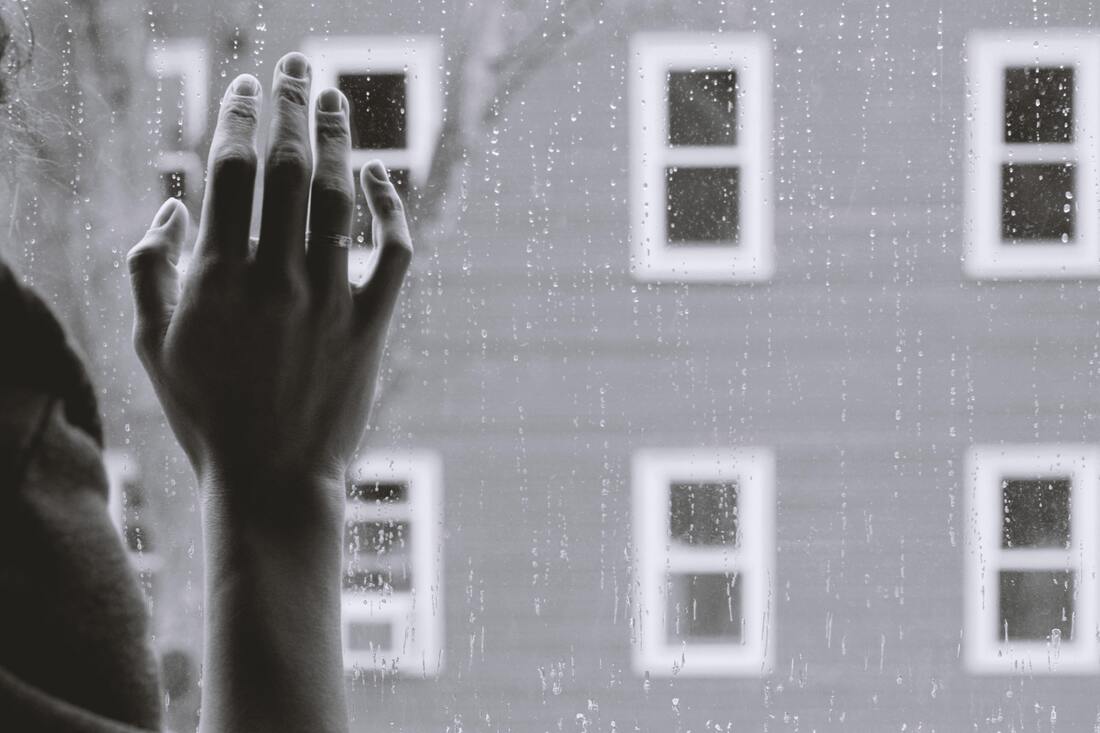I am fascinated by the connection between loneliness, social isolation, community and our health. I am not alone, there is an entire field called sociogenomics that is dedicated to examining how social factors affect the activity of our genome. Prior to the pandemic we knew that loneliness was on the rise worldwide and it was projected by the World Health Organization that we would hit epidemic levels of loneliness by 2030. Looks like we got there 10 years early.
The health risks associated with loneliness are comparable with well-established risk factors for disease such as physical inactivity and substance abuse. Loneliness increases mortality to the point that it is similar to smoking 15 cigarettes per day! The impacts of social isolation on our physiology include a reduction in sleep quality, increased risk of depression, HPA axis dysregulation and adverse cardiovascular outcomes.
Humans have spent most of our existence as a species being supported and protected by each other. Loneliness signals to our body that we are in danger, which kicks up our levels of inflammation and changes our immune response. Our cellular immunity is impaired, natural killer cells decline, and antibody titers rise. Loneliness also triggers our fight/flight/freeze stress response.
Technically the term used in research is Perceived Social Isolation or PSI because loneliness is a subjective emotional state; it is the perception of loneliness that matters. You can feel terribly alone in a crowd and perfectly content being alone. As an introvert I am acutely aware of this distinction. I often feel content alone and lonely at a party with people I don’t know (you know back when we actually went to parties). How can we use this to our advantage? I found a research study published in February 2021 that reviewed existing literature about what actually works to combat loneliness during the pandemic. The most effective interventions included mindfulness-based techniques as well as Tai Chi Qigong meditations and laughter therapy. Interestingly there was research on robotic pets that was generally positive and I wonder if living pets would provide more emotional support? That could be why adoption rates from animal shelters skyrocketed in the Spring of 2020. The researchers also found that leaning into existing relationships had more positive outcomes than trying to create new friendships.
The interventions studied around more screen time or making new friends wasn’t as positive for reducing PSI. I thought back to research I reviewed a few years ago from Oregon Health & Science University which reported having limited face-to-face social contact nearly doubles someone's risk of having depression. Interestingly, participants who made the effort to regularly connect with family and friends in person were much less likely to report symptoms of depression, when compared with participants who only texted, emailed, or spoke to friends and family on the telephone. I realize that it still isn’t quite safe yet to meet with people in close proximity but maybe the solution isn’t necessarily relying on technology as a sole means to bridge the gap.
What can we take away from this information? If the perception of loneliness is what causes us to become ill how can we shift our mindset? It seems as though mindfulness might be the answer. Some of my favorite mindfulness resources include:
What is helping you combat loneliness?
Resources:
Mindfulness Can Reduce the Effect of Loneliness Among Youth
Interventions to reduce social isolation and loneliness during COVID-19 physical distancing measures: A rapid systematic review
The health risks associated with loneliness are comparable with well-established risk factors for disease such as physical inactivity and substance abuse. Loneliness increases mortality to the point that it is similar to smoking 15 cigarettes per day! The impacts of social isolation on our physiology include a reduction in sleep quality, increased risk of depression, HPA axis dysregulation and adverse cardiovascular outcomes.
Humans have spent most of our existence as a species being supported and protected by each other. Loneliness signals to our body that we are in danger, which kicks up our levels of inflammation and changes our immune response. Our cellular immunity is impaired, natural killer cells decline, and antibody titers rise. Loneliness also triggers our fight/flight/freeze stress response.
Technically the term used in research is Perceived Social Isolation or PSI because loneliness is a subjective emotional state; it is the perception of loneliness that matters. You can feel terribly alone in a crowd and perfectly content being alone. As an introvert I am acutely aware of this distinction. I often feel content alone and lonely at a party with people I don’t know (you know back when we actually went to parties). How can we use this to our advantage? I found a research study published in February 2021 that reviewed existing literature about what actually works to combat loneliness during the pandemic. The most effective interventions included mindfulness-based techniques as well as Tai Chi Qigong meditations and laughter therapy. Interestingly there was research on robotic pets that was generally positive and I wonder if living pets would provide more emotional support? That could be why adoption rates from animal shelters skyrocketed in the Spring of 2020. The researchers also found that leaning into existing relationships had more positive outcomes than trying to create new friendships.
The interventions studied around more screen time or making new friends wasn’t as positive for reducing PSI. I thought back to research I reviewed a few years ago from Oregon Health & Science University which reported having limited face-to-face social contact nearly doubles someone's risk of having depression. Interestingly, participants who made the effort to regularly connect with family and friends in person were much less likely to report symptoms of depression, when compared with participants who only texted, emailed, or spoke to friends and family on the telephone. I realize that it still isn’t quite safe yet to meet with people in close proximity but maybe the solution isn’t necessarily relying on technology as a sole means to bridge the gap.
What can we take away from this information? If the perception of loneliness is what causes us to become ill how can we shift our mindset? It seems as though mindfulness might be the answer. Some of my favorite mindfulness resources include:
What is helping you combat loneliness?
Resources:
Mindfulness Can Reduce the Effect of Loneliness Among Youth
Interventions to reduce social isolation and loneliness during COVID-19 physical distancing measures: A rapid systematic review



 RSS Feed
RSS Feed